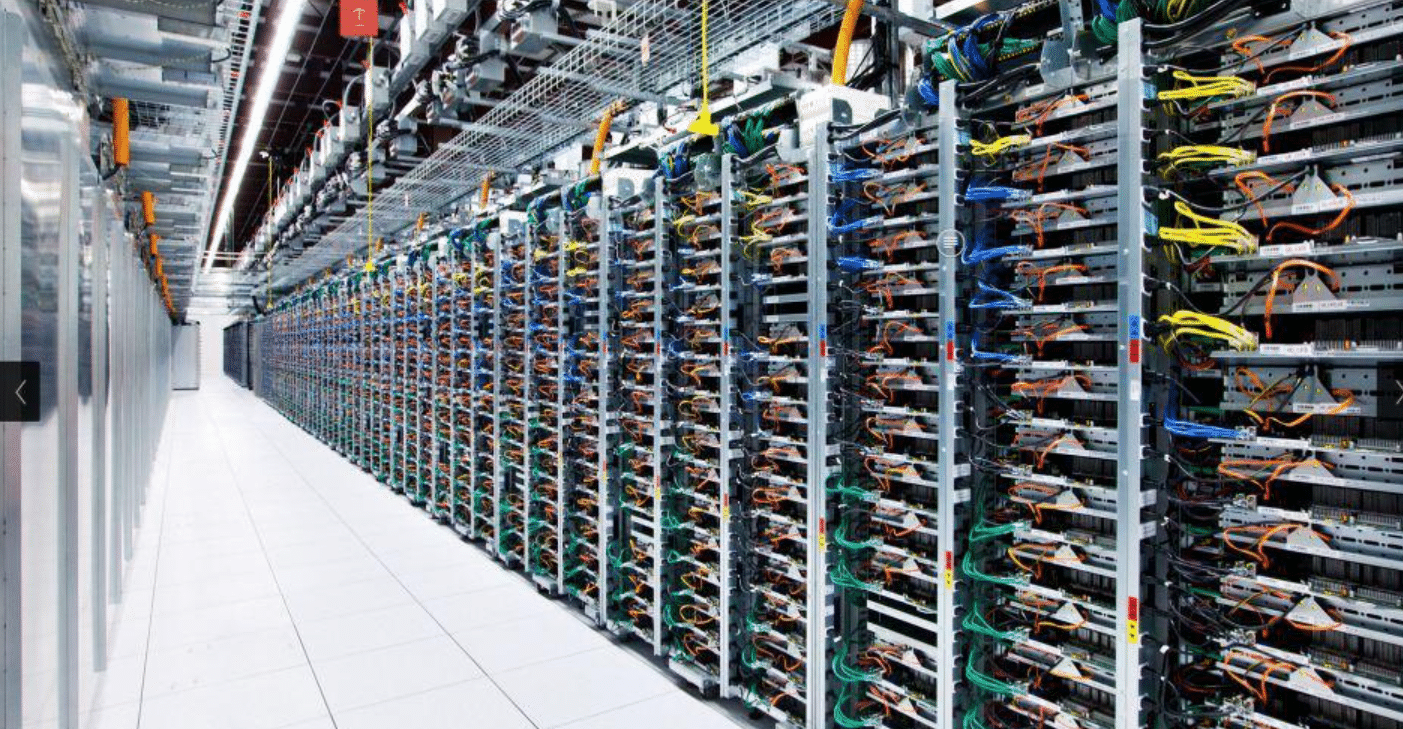Introduction
In the ever-evolving world of digital transformation, cloud computing has become an essential pillar for startups, enterprises, and developers around the globe. Among the major players in this space, Google Cloud Platform (GCP) has emerged as a leader, offering robust, flexible, and intelligent cloud infrastructure. At the heart of GCP lies the Google Cloud Server—a scalable virtual machine (VM) solution that empowers businesses to build, deploy, and scale applications on one of the most secure and high-performance networks in the world.
This article explores everything you need to know about Google Cloud Servers, including how they work, key features, benefits, pricing, and practical use cases. Whether you are a beginner looking to get started or a business considering migrating to the cloud, this guide provides clear insights into the power and potential of Google Cloud’s server infrastructure.

What Is a Google Cloud Server?
A Google Cloud Server is a virtual machine (VM) hosted on Google’s global network of data centers. It is offered through GCP’s Compute Engine, which provides Infrastructure-as-a-Service (IaaS) capabilities. These cloud servers give users access to customizable computing resources that can be scaled on demand to support a wide range of workloads—from simple websites to advanced artificial intelligence models.
Unlike traditional on-premise servers, Google Cloud Servers are:
-
Virtualized: They run on Google’s hypervisor technology.
-
Elastic: They can scale vertically and horizontally depending on resource needs.
-
Global: They can be deployed in multiple regions and zones worldwide.
-
Integrated: They work seamlessly with other GCP services like Cloud Storage, BigQuery, and Kubernetes Engine.
Core Features of Google Cloud Servers
Google Cloud Servers offer a wide range of capabilities and configurations tailored to meet diverse computing needs. Key features include:
1. Custom Machine Types
Unlike other platforms that offer fixed VM sizes, Google Cloud allows you to create custom machine types—choosing exactly how much CPU and memory your server needs. This allows for precise optimization and cost savings.
2. Preemptible VMs
For non-critical or batch-processing workloads, Google offers Preemptible VMs—temporary servers available at up to 80% lower cost. They’re ideal for testing, simulations, and short-lived tasks.
3. Sustained Use Discounts
Google automatically applies discounts the longer you use a VM within a billing cycle. No need to commit to long-term contracts.
4. Live Migration
Unlike many cloud providers, Google supports live migration of VMs during infrastructure maintenance. This means no downtime or service disruption.
5. High Performance Networking
Google’s global fiber-optic network ensures low latency and high throughput, which is critical for real-time applications, gaming, or large-scale data processing.
6. Integrated Security
Google Cloud’s infrastructure includes built-in encryption, DDoS protection, identity management (IAM), and compliance with global standards (ISO, GDPR, HIPAA, etc.).
Getting Started with Google Cloud Servers
Creating a server on Google Cloud is straightforward. Here’s a simplified step-by-step overview:
-
Sign Up for a Google Cloud Account
New users receive $300 in free credit valid for 90 days to explore any GCP service, including Compute Engine. -
Activate Compute Engine
Enable the Compute Engine API from the GCP Console. -
Create a VM Instance
-
Choose a machine type (e.g., e2-micro, n1-standard)
-
Select a region and zone
-
Choose an operating system (Debian, Ubuntu, Windows Server, etc.)
-
Configure disk size and networking
-
-
Connect via SSH
Once deployed, use Google Cloud’s browser-based SSH terminal to connect and begin configuring your server. -
Deploy and Manage
Install web servers, databases, or deploy containers as needed. Use GCP’s monitoring tools to track performance and logs.
Types of Google Cloud Server Machine Families
GCP offers several VM families, each optimized for different workloads:
1. General-Purpose VMs (E2, N2, N2D)
Great for web hosting, development, and moderate workloads. They provide a balance of performance and cost-efficiency.
2. Compute-Optimized VMs (C2)
Designed for CPU-intensive tasks such as gaming servers, high-performance web servers, and batch processing.
3. Memory-Optimized VMs (M2, M3)
These instances provide large amounts of memory and are ideal for in-memory databases, big data analytics, and SAP applications.
4. Accelerator-Optimized VMs (A2)
Equipped with NVIDIA GPUs for deep learning, ML model training, and 3D visualization.
Benefits of Using Google Cloud Servers
Here’s why thousands of organizations trust Google Cloud for their server needs:
1. Global Infrastructure
With 38+ cloud regions and 100+ edge locations, GCP enables low-latency access and redundancy around the globe.
2. Scalability and Flexibility
Scale up during peak loads and scale down during quiet periods. Automatically.
3. Cost Transparency and Control
GCP’s pricing is pay-as-you-go with clear cost estimators and budget alerts.
4. Deep Integration with AI & Big Data
Google Cloud Servers work seamlessly with TensorFlow, Vertex AI, BigQuery, and Dataflow—ideal for advanced analytics.
5. Open and Interoperable
Built on open-source standards like Kubernetes, GCP promotes multi-cloud and hybrid cloud strategies without vendor lock-in.
Use Cases for Google Cloud Servers
The versatility of Google Cloud Servers makes them suitable for many applications:
1. Web Hosting and CMS Platforms
Deploy scalable web applications using WordPress, Drupal, or custom frameworks like Django or Laravel.
2. Game Server Hosting
Low-latency and high-speed networking makes GCP suitable for real-time multiplayer games.
3. Machine Learning and AI
Train and deploy TensorFlow models with GPU-enabled instances.
4. Big Data Processing
Combine Compute Engine with BigQuery and Cloud Storage to perform ETL (Extract, Transform, Load) operations.
5. DevOps and CI/CD Pipelines
Build, test, and deploy code using Jenkins, GitLab, or Google Cloud Build integrated with Compute Engine.
6. VPN, Proxy, or Secure Tunnels
Host your own secure server for remote access or private network tunneling.
Free Tier and Budget-Friendly Options
Google Cloud provides generous free-tier options:
-
f1-micro VM in selected regions:
-
30 GB HDD, 1 GB egress/month, suitable for lightweight tasks
-
-
$300 credit for 90 days (new users)
To minimize costs:
-
Use Preemptible VMs for batch workloads
-
Set instance schedules to turn off VMs automatically
-
Monitor usage with the Billing Dashboard and Cloud Monitoring
Security and Compliance
Google Cloud servers are secured at every layer—from physical data center security to encryption at rest and in transit. GCP complies with:
-
ISO/IEC 27001
-
SOC 1/2/3
-
HIPAA
-
GDPR
-
FedRAMP (U.S. Government)
Security features include:
-
Identity and Access Management (IAM)
-
VPC firewalls and private networks
-
Data Loss Prevention APIs
-
Shielded VMs for added boot integrity
Challenges to Consider
While Google Cloud Servers offer powerful advantages, users should be aware of some challenges:
-
Learning Curve: Beginners may need time to understand IAM, firewall rules, and configurations.
-
Pricing Complexity: While transparent, pricing across regions, machine types, and sustained use discounts can be intricate.
-
Support Costs: Premium support is paid, although extensive documentation and community help are available.
The Future of Google Cloud Servers
Google continues to invest heavily in cloud infrastructure, AI, and edge computing. In the near future, we can expect:
-
More Global Regions and Carbon-Free Data Centers
-
Deeper AI/ML Integration with AutoML, Gemini, and generative AI tools
-
Simplified Kubernetes and serverless deployments for developers
-
Quantum-ready cloud infrastructure (long-term vision)
As industries become more reliant on cloud-based solutions, Google Cloud Servers are positioned to play a foundational role in powering tomorrow’s innovations.
Conclusion
Google Cloud Servers represent more than just virtual machines—they are a gateway to a powerful, scalable, and intelligent cloud ecosystem. With unmatched infrastructure, strong developer tools, competitive pricing, and industry-leading security, Google Cloud offers a compelling solution for businesses and individuals alike.
Whether you are hosting a simple blog, building a global e-commerce platform, training a machine learning model, or processing petabytes of data, Google Cloud Servers provide the performance and reliability you need to succeed.
